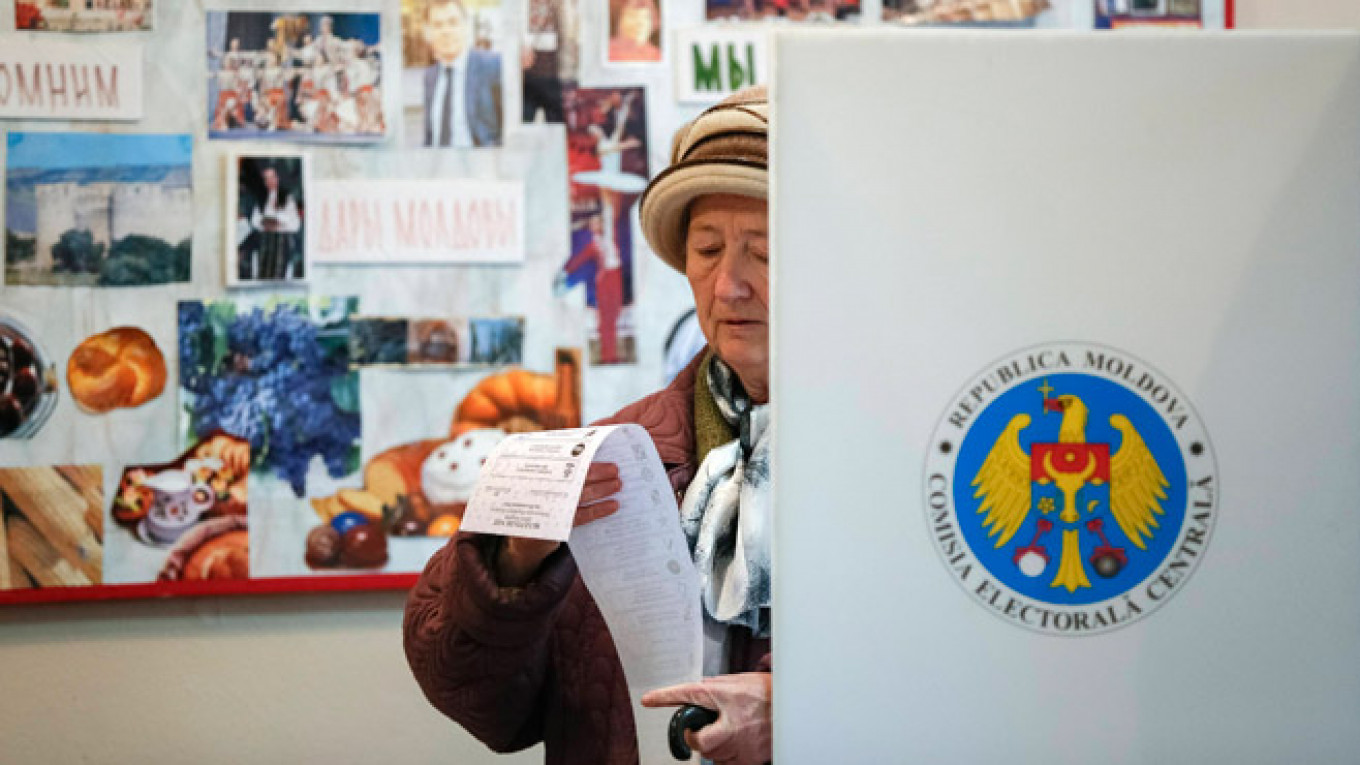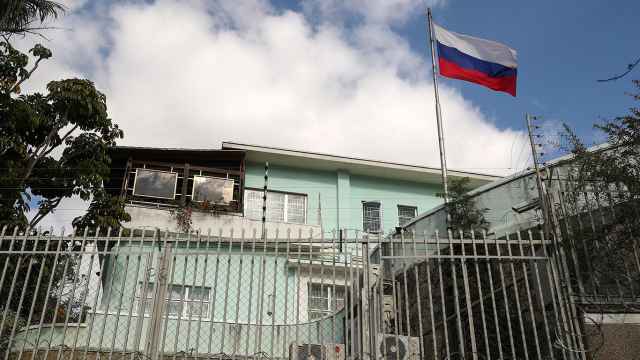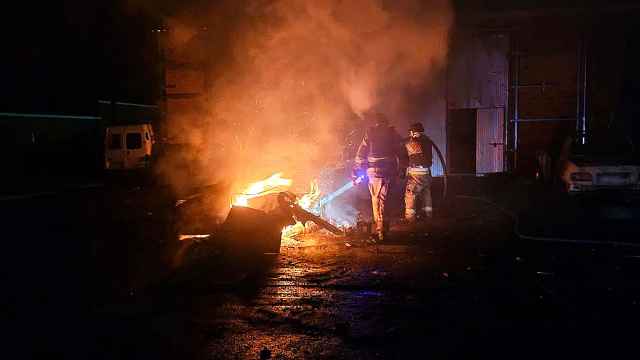CHISINAU — Ex-Soviet Moldova voted Sunday as polls showed the outcome might slow, though not halt, its moves to shift toward the European Union and away from Russia, which has hurt its economy by banning its wines and other prime exports.
Surveys show public opinion in one of Europe's smallest and poorest countries is divided over whether to stick to the pro-Europe path pursued by the ruling center-right coalition or reverse course and join the Russia-led economic bloc.
Moldova's breakaway pro-Russian enclave of Transdnestr gives Russia a potential springboard, but Moscow has so far shown no readiness to intervene as it has done in Ukraine, which has also pursued a pro-Europe agenda.
In pre-election opinion polls, the communists came in as a front-runner at 24 percent and the three pro-EU coalition parties, including the Liberal Democratic party of Prime Minister Iurie Leanca, together at 38 to 43 percent.
Moldova's communist opposition leader, former president Vladimir Voronin, supports integration with Europe, but he also aims to revise the trade part of an agreement with the European Union to protect domestic food producers from being overwhelmed by EU competition.
He also aims to improve relations with Moscow, Moldova's big energy provider, though he has been on poor terms with Russia since turning down a deal on Transdnestr a decade ago.
The parties need to gain at least 6 percent of the vote to win seats in the 101-seat parliament. A simple majority is required to form a government.
Polls opened at 7 a.m. and were to close at 9 p.m. No exit polls were planned, but early results were expected around midnight local time.
With the far-reaching political and trade deal with the EU bloc ratified and with Moldovans now enjoying visa-free travel to western Europe, commentators say it is difficult to imagine any new leadership gaining popular support for a U-turn back toward Moscow.
Russia has shown its displeasure by banning imports of wines, vegetables and meat from the landlocked country of 3.5 million wedged between war-torn Ukraine and EU member Romania.
The Russian ban has hurt an economy that is heavily dependent on agricultural exports and relies on cash inflows from 700,000 Moldovans working abroad to balance its books.
On the eve of the vote, a fresh irritant with Russia emerged when a high court excluded a party, led by a millionaire Russian businessman, on the grounds it was partially funded from abroad. Moscow said the expulsion of Renato Usatii's Patria (Motherland) party raised "serious doubts" about the election.
A strong showing by the anti-EU socialists could complicate Moldova's shift toward Europe. Their leader, Igor Dodon, is close to Russia's Vladimir Putin, and the party favors membership of a Russia-led customs union.
They could garner 6 to 8 percent support and may yet muscle their way into a coalition, particularly if they pick up the vote of those unable to cast ballots for Usatii's Patria party.
Prime Minister Leanca wants full membership in the European Union by 2020. But the ruling coalition has been tarnished over the past five years by a poor record of fighting corruption and by infighting, which could benefit the opposition.
Voronin, 72, on Sunday accused the "mafia-oligarch" leaders of organizing vote fraud.
"I voted so that Moldova will finally be able to get rid of all that has been going on for the past five years: all this corruption, this mafia that has seized the people and the country," he said.
A Message from The Moscow Times:
Dear readers,
We are facing unprecedented challenges. Russia's Prosecutor General's Office has designated The Moscow Times as an "undesirable" organization, criminalizing our work and putting our staff at risk of prosecution. This follows our earlier unjust labeling as a "foreign agent."
These actions are direct attempts to silence independent journalism in Russia. The authorities claim our work "discredits the decisions of the Russian leadership." We see things differently: we strive to provide accurate, unbiased reporting on Russia.
We, the journalists of The Moscow Times, refuse to be silenced. But to continue our work, we need your help.
Your support, no matter how small, makes a world of difference. If you can, please support us monthly starting from just $2. It's quick to set up, and every contribution makes a significant impact.
By supporting The Moscow Times, you're defending open, independent journalism in the face of repression. Thank you for standing with us.
Remind me later.






